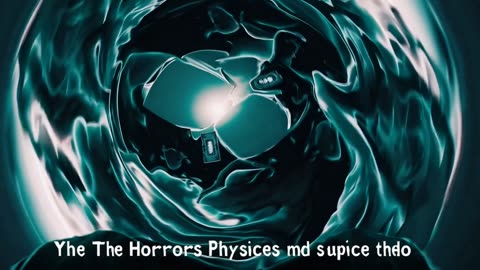
Science Fiction Author D. Colin Palmer
133 videos
Updated 16 days ago
This playlist is the collected work of Science Fiction Author D. Colin Palmer—a complete archive of commentary, monologues, and transmissions spanning every channel and project. Here you will find political essays, philosophical explorations, speculative science, and raw reflections on culture and history—all gathered into one place.
It is not just a playlist; it is a body of work, unfolding across mediums and moods. Every upload, from the sharpest commentary to the most abstract meditation, is a fragment of the same vision: to create art, truth, and thought that resonates beyond the noise.
For those who want to experience the full scope of D. Colin Palmer’s voice—across time, across subjects, across channels—this playlist is the unbroken thread.
-
UFO DISCLOSURE CHRISTMAS EVE: The Nearest Alien Worlds, Secret Gatekeepers, and the ‘Thin Sky’ Event
 ScienceFictionAuthorDColinPalmerTonight’s one-hour special combines three UFO-style monologues that escalate fast: first, the closest star systems where alien life could realistically be hiding… then a deep dive into the ancient “gatekeeper” idea—layers of reality, hidden rulers, and why some encounters feel more like thresholds than visitors… and finally a Christmas Eve crescendo where the sky turns “thin” and humanity hits a crossroads. No hard claims. No boring lecture tone. Just a serious, high-energy speculative broadcast—Ancient Aliens vibes, but with enough physics and old-text weirdness to make it feel uncomfortably plausible. If you’ve ever felt like the world is being nudged… hit play.74 views 1 comment
ScienceFictionAuthorDColinPalmerTonight’s one-hour special combines three UFO-style monologues that escalate fast: first, the closest star systems where alien life could realistically be hiding… then a deep dive into the ancient “gatekeeper” idea—layers of reality, hidden rulers, and why some encounters feel more like thresholds than visitors… and finally a Christmas Eve crescendo where the sky turns “thin” and humanity hits a crossroads. No hard claims. No boring lecture tone. Just a serious, high-energy speculative broadcast—Ancient Aliens vibes, but with enough physics and old-text weirdness to make it feel uncomfortably plausible. If you’ve ever felt like the world is being nudged… hit play.74 views 1 comment -
Unified Theory of the Quantum Dream: Aztec Suns, Viking Time, and the Silence In Between
 ScienceFictionAuthorDColinPalmerA long-form, far-out exploration of myth, physics, and consciousness—where Aztec prophecy, Viking fate, psychoanalysis, and quantum theory are woven together into one shimmering idea: that reality is a cascading dream of matter and silence, unfolding from a single point of origin.30 views
ScienceFictionAuthorDColinPalmerA long-form, far-out exploration of myth, physics, and consciousness—where Aztec prophecy, Viking fate, psychoanalysis, and quantum theory are woven together into one shimmering idea: that reality is a cascading dream of matter and silence, unfolding from a single point of origin.30 views -
Buddha, Christ, And The Poker Table: Answering Natalie’s Question
 ScienceFictionAuthorDColinPalmerA thoughtful fan on X sent a long, sincere question into the Science Fiction Fantasy Theater inbox: “How can someone who talks so much about Buddhism, Christianity, home education, and ethics also be so deeply involved in gambling?” This long-form monologue is the crew’s full reply on behalf of science fiction author D. Colin Palmer. In this episode, we walk through the strange little universe we’re building: the Ruins of Dominion role-playing series, the upcoming 24-hour channel, the poker phone, the home-education initiatives, and the plan to hire new writers and commentators from around the world. Then we go straight at the hard part: how Duane reconciles Buddhist and Christian belief with advantage play, probability, bankroll management, and game theory. We talk about bets as koans, variance as impermanence made visible, Kelly Criterion as a kind of Middle Way, and the parable of the talents as a spiritual defense of disciplined risk. We also draw the line very clearly between disciplined advantage play and real addiction, and explain why the Bodhi tree, in his view, can be found anywhere a human being faces their own greed and fear honestly—including at a card table. If you’ve ever wondered how faith, math, and risk can be woven together without lying to yourself, this is the deep dive. And to Natalie, and people like her who actually write in: you are now friends of the channel.30 views
ScienceFictionAuthorDColinPalmerA thoughtful fan on X sent a long, sincere question into the Science Fiction Fantasy Theater inbox: “How can someone who talks so much about Buddhism, Christianity, home education, and ethics also be so deeply involved in gambling?” This long-form monologue is the crew’s full reply on behalf of science fiction author D. Colin Palmer. In this episode, we walk through the strange little universe we’re building: the Ruins of Dominion role-playing series, the upcoming 24-hour channel, the poker phone, the home-education initiatives, and the plan to hire new writers and commentators from around the world. Then we go straight at the hard part: how Duane reconciles Buddhist and Christian belief with advantage play, probability, bankroll management, and game theory. We talk about bets as koans, variance as impermanence made visible, Kelly Criterion as a kind of Middle Way, and the parable of the talents as a spiritual defense of disciplined risk. We also draw the line very clearly between disciplined advantage play and real addiction, and explain why the Bodhi tree, in his view, can be found anywhere a human being faces their own greed and fear honestly—including at a card table. If you’ve ever wondered how faith, math, and risk can be woven together without lying to yourself, this is the deep dive. And to Natalie, and people like her who actually write in: you are now friends of the channel.30 views -
Twilight at the Point of Origin
 ScienceFictionAuthorDColinPalmerThis episode features two intense, long-form monologues from science fiction author D. Colin Palmer. The first is a deep Jungian–Buddhist examination of collective insanity, societal breakdown, and the archetypal forces that drive civilizations toward darkness and potential renewal. The second is a theoretical physics journey through a “hall of mirrors” universe, where quantum mechanics, holography, and information theory are explained from the viewpoint of a dealer at the Point of Origin, calmly laying out the structure of reality like cards on a cosmic table. Designed for serious listeners, text-to-speech, and late-night reflection, this piece is part philosophy lecture, part psychoanalytic field report, and part quantum thought experiment.35 views
ScienceFictionAuthorDColinPalmerThis episode features two intense, long-form monologues from science fiction author D. Colin Palmer. The first is a deep Jungian–Buddhist examination of collective insanity, societal breakdown, and the archetypal forces that drive civilizations toward darkness and potential renewal. The second is a theoretical physics journey through a “hall of mirrors” universe, where quantum mechanics, holography, and information theory are explained from the viewpoint of a dealer at the Point of Origin, calmly laying out the structure of reality like cards on a cosmic table. Designed for serious listeners, text-to-speech, and late-night reflection, this piece is part philosophy lecture, part psychoanalytic field report, and part quantum thought experiment.35 views -
Time Travel, Buddhism, And The Block Universe: Being Both The Question And The Answer
 ScienceFictionAuthorDColinPalmerIn this long-form preface, Science Fiction Author D. Colin Palmer explores time travel from two intertwined angles: the Buddhist understanding of awakening and the scientific picture of a four-dimensional block universe. Before we even touch equations, worldlines, or wormholes, this monologue begins where true inquiry always begins: with the one who is asking the question. Through the lens of Buddhism, we look at what it means to be both the question and the answer, how awareness itself is the field in which time, space, and all stories appear, and why the Bodhi tree is less a single place and more a point of no return in your own life where you cannot keep living on autopilot. From there, the piece shifts gradually into the scientific landscape: relativity, the block universe, differential aging, and the idea that all moments exist together in a single, coherent geometry. We consider how time travel to the future through speed and gravity is already a built-in feature of the universe, and how the more exotic ideas—closed timelike curves, wormholes, and quantum consistency—start to sound like a technical translation of dependent origination and the web of causes that Buddhism has described for centuries. Instead of treating physics and spirituality as rivals, this monologue invites you to see them as two ways of mapping the same territory: one with equations, one with introspection. Along the way, Palmer frames his upcoming 24-hour channel as a kind of unconventional temple: a blend of science fiction theatre, role-playing campaigns, gambling and poker advice, real-world education, and reflections on Buddhism and consciousness. The message is simple but demanding: there are many paths to the Bodhi tree. Some will find it on a meditation cushion. Others may catch a glimpse of it at three in the morning, listening to a man in a red sequined jacket talk about time dilation, poker, and the illusion of a solid self. This monologue is an invitation to treat time travel not just as a sci-fi fantasy, but as a deep thought experiment about who you really are, what “now” really means, and how awakening might include the whole tapestry of time rather than just one fragile thread. If you are interested in Buddhism, theoretical physics, time travel, poker, role-playing worlds, or simply the idea that you might be more than the small story you tell yourself, this is the starting point. The journey into time travel begins here, with the recognition that you are already both the traveler and the landscape, both the question and the answer.72 views
ScienceFictionAuthorDColinPalmerIn this long-form preface, Science Fiction Author D. Colin Palmer explores time travel from two intertwined angles: the Buddhist understanding of awakening and the scientific picture of a four-dimensional block universe. Before we even touch equations, worldlines, or wormholes, this monologue begins where true inquiry always begins: with the one who is asking the question. Through the lens of Buddhism, we look at what it means to be both the question and the answer, how awareness itself is the field in which time, space, and all stories appear, and why the Bodhi tree is less a single place and more a point of no return in your own life where you cannot keep living on autopilot. From there, the piece shifts gradually into the scientific landscape: relativity, the block universe, differential aging, and the idea that all moments exist together in a single, coherent geometry. We consider how time travel to the future through speed and gravity is already a built-in feature of the universe, and how the more exotic ideas—closed timelike curves, wormholes, and quantum consistency—start to sound like a technical translation of dependent origination and the web of causes that Buddhism has described for centuries. Instead of treating physics and spirituality as rivals, this monologue invites you to see them as two ways of mapping the same territory: one with equations, one with introspection. Along the way, Palmer frames his upcoming 24-hour channel as a kind of unconventional temple: a blend of science fiction theatre, role-playing campaigns, gambling and poker advice, real-world education, and reflections on Buddhism and consciousness. The message is simple but demanding: there are many paths to the Bodhi tree. Some will find it on a meditation cushion. Others may catch a glimpse of it at three in the morning, listening to a man in a red sequined jacket talk about time dilation, poker, and the illusion of a solid self. This monologue is an invitation to treat time travel not just as a sci-fi fantasy, but as a deep thought experiment about who you really are, what “now” really means, and how awakening might include the whole tapestry of time rather than just one fragile thread. If you are interested in Buddhism, theoretical physics, time travel, poker, role-playing worlds, or simply the idea that you might be more than the small story you tell yourself, this is the starting point. The journey into time travel begins here, with the recognition that you are already both the traveler and the landscape, both the question and the answer.72 views -
Fan Mail From a Parallel Reality: Music Promoter Endorses D. Colin Palmer’s Education Initiative
 ScienceFictionAuthorDColinPalmerA music video promoter from a nearby parallel reality drops in for 25 seconds to say one simple thing: subscribe to Science Fiction Author D. Colin Palmer’s channel and see where this whole education experiment goes.49 views
ScienceFictionAuthorDColinPalmerA music video promoter from a nearby parallel reality drops in for 25 seconds to say one simple thing: subscribe to Science Fiction Author D. Colin Palmer’s channel and see where this whole education experiment goes.49 views -
Lecture 1 – Understanding Nietzsche | Philo 1000 with Science Fiction Author D. Colin Palmer
 ScienceFictionAuthorDColinPalmerThis is Lecture 1 in the Philo 1000 series, part of an ongoing Introduction to Philosophy project with science fiction author D. Colin Palmer. The long-term goal of this series is simple and ambitious: to build a serious, fully independent alternative to the overpriced, overly ideological university system. No tuition, no indoctrination—just real intellectual training for people who actually want to think. In this opening lecture, we take a deep dive into Friedrich Nietzsche: his life, his illnesses, his break with the academic world, his complicated relationship with Richard Wagner, his mental collapse, and the posthumous distortions of his work. From there, the lecture walks through Nietzsche’s core ideas in clear language—“God is dead,” nihilism, the genealogy of morals, herd morality, will to power, perspectivism, eternal recurrence, and the Übermensch—and explains how to use them as tools for self-examination, not as edgy slogans. You will also hear concrete advice on how to read Nietzsche as an independent student outside the university system: Which texts to start with (and which to save for later) How to handle his aphoristic style without getting lost How to keep a Nietzsche notebook and turn reading into real training How to balance his harshness with your own mental health and your own moral judgment How to benefit from Nietzsche without misusing him as a license for cynicism or cruelty This lecture is designed for people who want more than a degree. It is for individuals who want to build a mind—to sharpen their perception of culture, question the genealogy of their own values, and step out of herd thinking. Nietzsche is not presented here as a guru to obey, but as a dangerous, necessary teacher whose thought you must ultimately outgrow, carrying forward only what has been tested and earned. If you are building your own personal curriculum in philosophy and want a structured, serious starting point, this Philo 1000 – Lecture 1 is where we begin. Subscribe for upcoming lectures in the Philo 1000 series, as well as additional courses in philosophy, psychology, political thought, and more—presented in long-form, lecture style, free to the public.31 views
ScienceFictionAuthorDColinPalmerThis is Lecture 1 in the Philo 1000 series, part of an ongoing Introduction to Philosophy project with science fiction author D. Colin Palmer. The long-term goal of this series is simple and ambitious: to build a serious, fully independent alternative to the overpriced, overly ideological university system. No tuition, no indoctrination—just real intellectual training for people who actually want to think. In this opening lecture, we take a deep dive into Friedrich Nietzsche: his life, his illnesses, his break with the academic world, his complicated relationship with Richard Wagner, his mental collapse, and the posthumous distortions of his work. From there, the lecture walks through Nietzsche’s core ideas in clear language—“God is dead,” nihilism, the genealogy of morals, herd morality, will to power, perspectivism, eternal recurrence, and the Übermensch—and explains how to use them as tools for self-examination, not as edgy slogans. You will also hear concrete advice on how to read Nietzsche as an independent student outside the university system: Which texts to start with (and which to save for later) How to handle his aphoristic style without getting lost How to keep a Nietzsche notebook and turn reading into real training How to balance his harshness with your own mental health and your own moral judgment How to benefit from Nietzsche without misusing him as a license for cynicism or cruelty This lecture is designed for people who want more than a degree. It is for individuals who want to build a mind—to sharpen their perception of culture, question the genealogy of their own values, and step out of herd thinking. Nietzsche is not presented here as a guru to obey, but as a dangerous, necessary teacher whose thought you must ultimately outgrow, carrying forward only what has been tested and earned. If you are building your own personal curriculum in philosophy and want a structured, serious starting point, this Philo 1000 – Lecture 1 is where we begin. Subscribe for upcoming lectures in the Philo 1000 series, as well as additional courses in philosophy, psychology, political thought, and more—presented in long-form, lecture style, free to the public.31 views -
Fan Mail From a Parallel Reality: Heavy Metal Icon Endorses Palmer’s Education Initiative
 ScienceFictionAuthorDColinPalmerThis is a piece of fan mail from a parallel reality—or at least that’s exactly what it feels like. In this 25-second clip, an English heavy metal musician from somewhere just slightly sideways to our universe is lounging on a battered couch, casually giving a shout-out to Science Fiction Author D. Colin Palmer’s global education initiative. He talks about the upcoming website, the multilingual learning channels, and the strange-but-beautiful idea that knowledge can be broadcast across worlds, timelines, and Rumble feeds alike. As a fan of the channel, I had to upload this message. It’s not every day someone from another reality drops by to say they believe in expanding human intelligence.57 views
ScienceFictionAuthorDColinPalmerThis is a piece of fan mail from a parallel reality—or at least that’s exactly what it feels like. In this 25-second clip, an English heavy metal musician from somewhere just slightly sideways to our universe is lounging on a battered couch, casually giving a shout-out to Science Fiction Author D. Colin Palmer’s global education initiative. He talks about the upcoming website, the multilingual learning channels, and the strange-but-beautiful idea that knowledge can be broadcast across worlds, timelines, and Rumble feeds alike. As a fan of the channel, I had to upload this message. It’s not every day someone from another reality drops by to say they believe in expanding human intelligence.57 views -
The God in the Wavefunction: Aztec Divination and the Physics of Time
 ScienceFictionAuthorDColinPalmerStep into the Smoking Mirror. This video weaves together several intense, long-form monologues that explore time travel, quantum mechanics, theoretical physics, and the nature of consciousness through the eyes of the Aztec (Mexica-Nahua) cosmos. Instead of looking at Tezcatlipoca, Quetzalcoatl, Mictlan, the Five Suns, and the sacred calendar as “myths,” we treat them as an alternate scientific language—an encoded physics manual written in blood, obsidian, and prophecy. Time loops become closed timelike curves hidden in sacrificial narratives. The quantum observer effect becomes Tezcatlipoca’s smoking mirror deciding which reality solidifies when we dare to look. Retrocausality and delayed-choice experiments become the gods rewriting history from the future. Across these monologues, we ask: What if the Aztec priest staring into a polished black mirror was doing the same thing as a modern physicist staring into a detector—collapsing wavefunctions with ritual and attention? What if human sacrifice, the New Fire Ceremony, and journeys through Mictlan were archetypal descriptions of entropy, black holes, information paradoxes, and cosmic reboot cycles? And what if our entire universe behaves like a divination ritual in progress, where every observation is a cut into the fabric of possibility, and every experiment is a prayer that binds past and future into a single, self-consistent knot? If you’re interested in hardcore conceptual bridges between ancient spirituality and cutting-edge science—Aztec cosmology, quantum theory, multiverse speculation, simulation theory, and the physics of fate—this is your invitation to sit down, listen closely, and let the Feathered Serpent and the Smoking Mirror argue with Einstein and Schrödinger in the back of your mind. Like, share, and subscribe if you want more long-form monologues that treat mythology as advanced code, not primitive superstition.48 views
ScienceFictionAuthorDColinPalmerStep into the Smoking Mirror. This video weaves together several intense, long-form monologues that explore time travel, quantum mechanics, theoretical physics, and the nature of consciousness through the eyes of the Aztec (Mexica-Nahua) cosmos. Instead of looking at Tezcatlipoca, Quetzalcoatl, Mictlan, the Five Suns, and the sacred calendar as “myths,” we treat them as an alternate scientific language—an encoded physics manual written in blood, obsidian, and prophecy. Time loops become closed timelike curves hidden in sacrificial narratives. The quantum observer effect becomes Tezcatlipoca’s smoking mirror deciding which reality solidifies when we dare to look. Retrocausality and delayed-choice experiments become the gods rewriting history from the future. Across these monologues, we ask: What if the Aztec priest staring into a polished black mirror was doing the same thing as a modern physicist staring into a detector—collapsing wavefunctions with ritual and attention? What if human sacrifice, the New Fire Ceremony, and journeys through Mictlan were archetypal descriptions of entropy, black holes, information paradoxes, and cosmic reboot cycles? And what if our entire universe behaves like a divination ritual in progress, where every observation is a cut into the fabric of possibility, and every experiment is a prayer that binds past and future into a single, self-consistent knot? If you’re interested in hardcore conceptual bridges between ancient spirituality and cutting-edge science—Aztec cosmology, quantum theory, multiverse speculation, simulation theory, and the physics of fate—this is your invitation to sit down, listen closely, and let the Feathered Serpent and the Smoking Mirror argue with Einstein and Schrödinger in the back of your mind. Like, share, and subscribe if you want more long-form monologues that treat mythology as advanced code, not primitive superstition.48 views -
Finding Your Frequency in the Shakespearean Multiverse
 ScienceFictionAuthorDColinPalmerA 48-minute journey through self, signal, and story — where emotional resonance meets the architecture of alternate realities. We begin with a grounded exploration of how you broadcast your inner state, how others unconsciously tune to it, and how to raise your frequency until you naturally find the people who match you — no force, no pretending. From there, the lens widens: Shakespeare becomes a map of universes layered like infinite stages, worlds born and dying like bubble-realities in cosmic dark. The plays don’t just speak — they echo. They repeat patterns like physics does: tragedy, comedy, chaos, order, collapse, rebirth. Eternal inflation disguised as theatre. Pocket worlds structured by decisions, timing, and fate. And to close, a final ballad: the last Macbeth, rewritten beyond prophecy, ripping free from the page to walk through an ending with fire in his blood. A universe collapses — but this time, he writes the final scene. Find your frequency. Find your universe. Step onto the stage that answers back.50 views
ScienceFictionAuthorDColinPalmerA 48-minute journey through self, signal, and story — where emotional resonance meets the architecture of alternate realities. We begin with a grounded exploration of how you broadcast your inner state, how others unconsciously tune to it, and how to raise your frequency until you naturally find the people who match you — no force, no pretending. From there, the lens widens: Shakespeare becomes a map of universes layered like infinite stages, worlds born and dying like bubble-realities in cosmic dark. The plays don’t just speak — they echo. They repeat patterns like physics does: tragedy, comedy, chaos, order, collapse, rebirth. Eternal inflation disguised as theatre. Pocket worlds structured by decisions, timing, and fate. And to close, a final ballad: the last Macbeth, rewritten beyond prophecy, ripping free from the page to walk through an ending with fire in his blood. A universe collapses — but this time, he writes the final scene. Find your frequency. Find your universe. Step onto the stage that answers back.50 views








